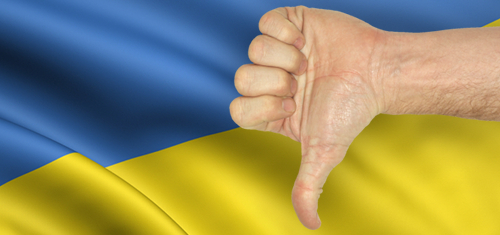 Ukraine is poised to authorize both land-based and online gambling after a six-year period in which both activities were strictly illegal.
Ukraine is poised to authorize both land-based and online gambling after a six-year period in which both activities were strictly illegal.
On Tuesday, the Ministry of Finance posted the draft of a bill to legalize land-based casinos, sports betting and a single lottery, as well as online gambling sites. The bill calls for the creation of a national gambling regulator that will report to the Ministry of Finance.
To qualify for a new Ukrainian gambling license, companies must be based in the Ukraine and must demonstrate that they have at least €2m of their own capital apart from any borrowed funds. They may need a lot more than that given the combination of taxes and fees they’ll be asked to pay.
Land-based casinos will be subject to various restrictions on the number of gaming tables and electronic gaming machines they can offer, as well as minimum hiring requirements. Land-based casino operators will be subject to an annual license fee of €300k in cities of less than 500k residents, €600k in cities with over 500k residents and €1m for a casino in the capital Kiev. Online casino operators will be dinged €1.5m per year.
Bookmakers will also be able to operate online but they will face certain restrictions on where they can install betting shops. A bookmaking license will cost €1.5m per year plus €1,500 to €3,000 per retail shop (the latter figure would apply to shops in cities of over 500k residents). Bookmakers wishing to take their action online would pay a further €300k.
A single lottery operator will be selected following a tender process. Prospective applicants must have five years experience operating in at least three foreign countries, with total turnover during this period of no less than €3b. Companies “registered in the offshore zone” need not apply.
The bill is only a draft and may undergo significant revision before it becomes law. Irina Sergienko, director of the All-Ukrainian Union of bookmakers, told Betting Business Russia that she was in favor of the bill’s broad strokes, but said the proposed 20% tax on gross gaming revenue was too high when combined with the cost of the licenses.
Sergienko believes that if the tax isn’t reduced, the Ukrainian market will come to be ruled by those that can afford it, which she described as “very large companies that operate according to the law of large numbers.” A more “rational” tax and fee structure would be best to create “a healthy, stable emerging market with long-term investment.”






